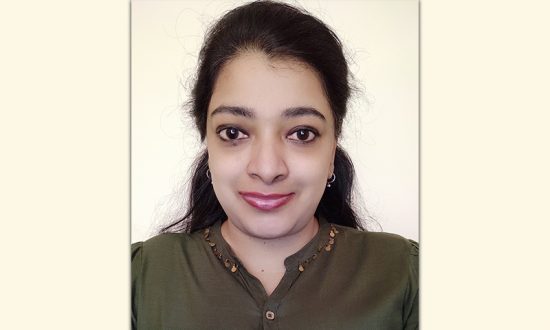Dr. Grace Joseph, the Academic Head of the School of Allied Healthcare and Sciences, JAIN (Deemed-to-be University), is a physician in primary health care with hospital experience in Karnataka, Kerala, and the Czech Republic. A graduate of Kasturba Medical College, Manipal, Karnataka, she attended Marymount International School, London, and Dhahran International School, Saudi Arabia. She is a keen contributor to medical sciences and global welfare through positive and productive outcomes.
The prominent Allied Healthcare industry has been making significant contributions towards the global healthcare industry, as well as to the Indian Economy. The professionals of this domain provide essential support and services to the medical system through a vast array of technical, diagnostic, therapeutic, rehabilitative, and curative services. Allied Healthcare professionals utilize their expertise for the prevention, diagnosis, and treatment of diseases, and the rehabilitation of people of all ages in all specialties.
In this current crisis, the healthcare sector now more than ever requires trained and skilled allied healthcare professionals who offer quality services to their patients. In recent times the demand for these programs has risen significantly, with many students opting for Health Science as their specialization. This heralds a new era for modern healthcare systems. There are various fields available, such as Physiotherapy, Speech-Language, Nuclear Medicine Technology, Optometry, Psychology, Medical Lab Technology, etc, which offer lucrative career prospects to healthcare aspirants. Let’s explore:
- Bachelor of Science Anaesthesia Technology: This program qualifies healthcare professionals to work in healthcare environments using the skills required for anaesthesia administration. Anaesthesia technologists take care of patients throughout their perioperative anaesthetic care.
- Bachelor of Science in Cancer Biology: Although great effort has gone into the battle against cancer, it remains a leading cause of mortality. It is thus of utmost importance to examine and better understand the biology of cancer, developing more accurate and effective means of diagnosis and therapy.
- Bachelor of Science in Critical Care Technology: Critical Care Technology is a very demanding job, with this healthcare professional shaving detailed knowledge in the fields of infection control, oxygen therapy, ventilator care, respiratory support, trauma burns, etc. There is a great demand in every hospital and healthcare unit for critical care technologists who are capable of installation, maintenance, and reading of medical devices and machines.
- Bachelor of Science in Nuclear Medicine Technology: This program teaches the specialized use of radioactive tracers in the diagnosis and treatment of different ailments. The technologists are closely involved in research and investigation of the uses of radiopharmaceutical drugs.
- Bachelor of Science in Nutrition and Dietetics: An important branch of medical science, this program studies aspects of nutrition and its benefits and effects on the body. Aspirants can become certified nutritionists in various healthcare facilities or set up independent clinics.
- Bachelor of Science in Virology and Immunology: Students will gain a broader perspective and knowledge of biomedical science. The program also offers in-depth information about viruses, how they mutate, multiple variants, how these infections spread, and the means to control them.
Career Opportunities Healthcare Professionals can consider:
- Pharmacy Technician: Pharmacy technicians are healthcare professionals who assist licensed pharmacists to prescribe medicines to customers. This demands the pharmacy technician to have strong knowledge in pharmaceutical terminology, drug administration, pharmacy management, and more.
- Medical Assistant: Medical assistants have a very demanding job in the field of allied healthcare. The assistants are required to manage both the daily administrative as well as clinical tasks in healthcare services. The specific duty of medical assistants depends on one’s expertise, experience, and location.
- Medical records and health information technician: The health information technicians essentially manage and organize patient records. These professionals primarily use data to categorize information that is required for insurance reimbursement, database registries, and patient medical histories.
- Dietician and Nutritionist: Dieticians and nutritionists counsel patients about their diet to help them maintain a healthy lifestyle by providing suitable diet plans as per the individual’s capability and health records.
- Audiologist: Audiologists test and assess the hearing of their patients. The work is to comprehend, distinguish and treat hearing problems. Audiologists help patients by directing their rehabilitation, management of hearing loss, and related correspondence issues.
- Optometry: Optometrists recognize vision defects through a variety of assessments and prescribe methods to resolve these issues. The treatment incorporates solutions like eyeglasses, contact lenses, assortments of optical guides, vision treatment, and curative eye drops. Optometrists may also refer customers to fellow medical experts as required.




